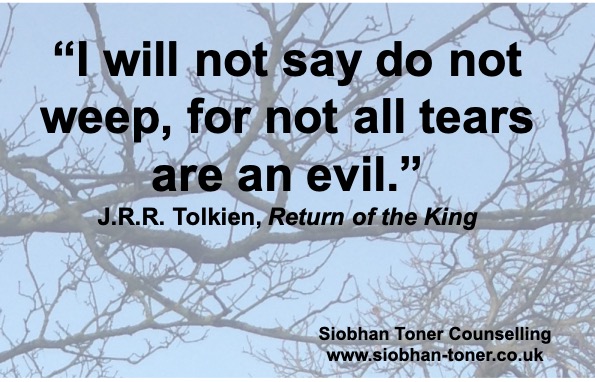
Thursday Thoughts


Counselling in London or online
For one-to-one therapy for scapegoating, sibling abuse, bereavement, anxiety and depression

I believe that everyone can benefit from having counselling once they find the counsellor that suits them.
How do you know if I am the right one for you? It may help to know a bit more about me. I come from a London Irish working class background and I was raised in Southwark.
I am down to earth and open in the counselling space and my role is to help facilitate your exploration of the issues that have brought you there. I do this by listening to what you are saying but also what you may not be saying. By exploring this with you it can lead to greater understanding of what you are experiencing.
I don’t just listen, I work to understand what it would be like to experience what you are telling me in a non judgemental way and I will check my understanding with you to ensure I am getting it right. This stops me making assumptions about you and your life.
I think its important to use regular language and vocabulary in our work together, I’m not there to impress you with my use of theory and academic abilities. When I speak it is only to help you in your processing of what you are bringing.
I believe that as many people as possible should have access to counselling so I also work online as it gives people more options, clients can schedule around work and family commitments without having to take extra time to travel to appointments.
Visit the contact page to find ways to get in touch. You may also notice that my home page gives details of my current availability. I know it can be incredibly frustrating reaching out to a counsellor only to find they don’t have space that is suitable for you so I try to keep this as up to date as possible.
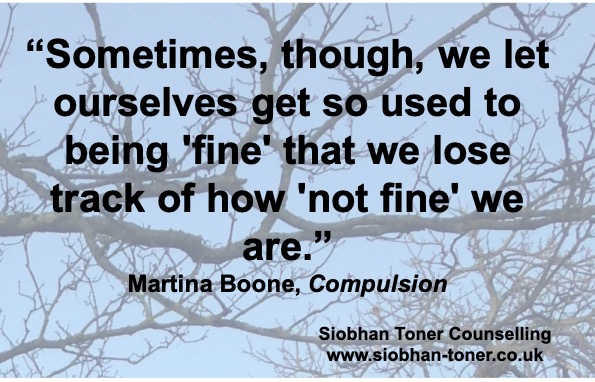
The Christmas period can highlight some of the cracks within family systems and our relationships within them I’ve been thinking a lot about emotional abuse lately and its impact, not just on the victim but the abuser.
Once the victim of emotional abuse recognises what is happening they often cut off all contact. When this is within families, parent and child or sibling, the abuser may still be left with expectations that are now not being met by the other person.
How often does the abuser recognise that it was their actions that led to the estrangement? In my experience, very rarely. Without that acknowledgement, the situation isn’t going to change. Instead the abuser may fall into a pattern of recrimination and self-pity and end up feeling as though they are the person who is being mistreated and believe that their victim is the one in the wrong.
Until we are able to really take responsibility, its not possible to grow as individuals. Its hard when we have done things that have harmed others but necessary.
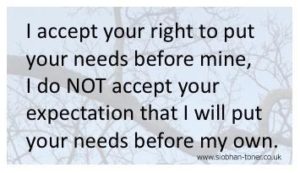
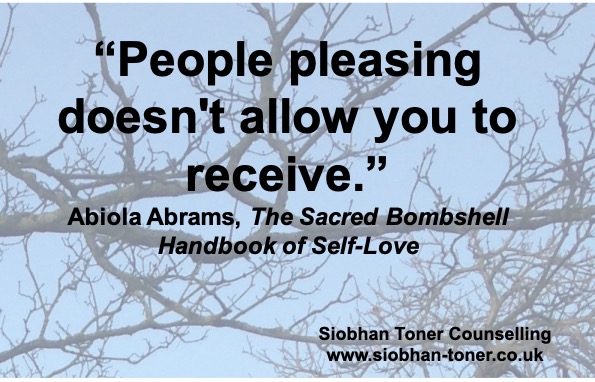
Are you finding the thought of Christmas day difficult because you are going to be spending it alone?
For years on Twitter there is a hashtag #joinin which was started by the comedian Sarah Millican . It was aimed aimed specifically at people who will be alone to give them people to talk to on Christmas day who are in the same situation. She said last year she was stepping down from it but hoped the hashtag would continue. With the demise of Twitters user base and rise of other platforms like BlueSky and Threads I hope the community that needs to find each other can do that this year.
Social media can be a great way to connect such as the twitter hashtag above, but it can also be something that makes us unhappy. This article has an interesting take on how Facebook lurking just makes us more dissatisfied if we believe everyone else is having a much better time than us. If you can’t use it to connect with people, how about having a break from it on Christmas day so you don’t put pressure on yourself on what it is supposed to be?
I wish you all the best over the next few days and hope you find some peace and joy, whatever your current circumstance.
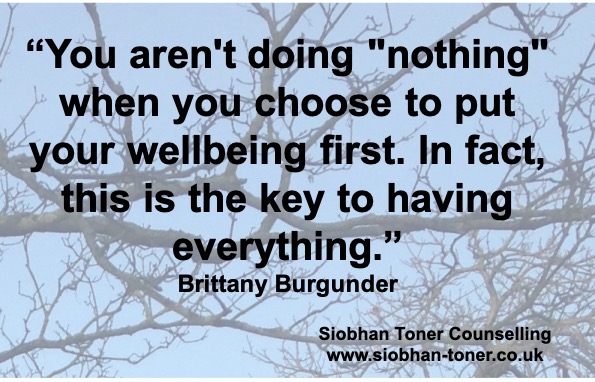
There is a lot of celebrating going on around us at this time of year, but what if you aren’t part of that?
There are many reasons that you may be finding the festivities hard to cope with. One of those is bereavement, either a recent one or one that happened at this time of year in the past. Cruse have put together the graphic at the bottom of the page which you may find useful.
But there are other reasons; you may be suffering from an illness that makes it hard to feel like celebrating. This could be a mental health illness or one that gives you physical pain.
You might be estranged from family members and all the talk of family gatherings make it hard for you to join in the happiness because of your own emotions.
Your children may not be spending Christmas with you as they are with their other parent or your family is in another country.
You may be lonely and feel you don’t have anyone to spend the holiday with.
There are always organisations open to offer you crisis help if you need it, the most well know is the Samaritans who are there to talk if you need it.
Maybe what you need is to plan to change something longer term and are thinking about therapy. This might be the time to initiate that, please feel free to contact me if that is the case.
To all those people who are finding it tough this year I hope you find some solace and find some peace despite what is going on for you.
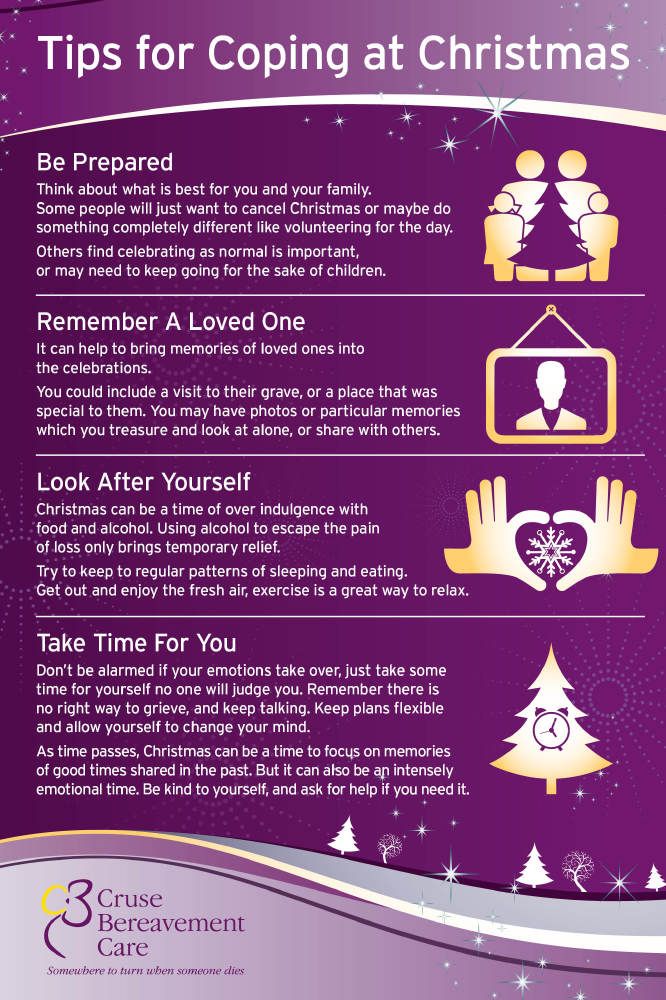
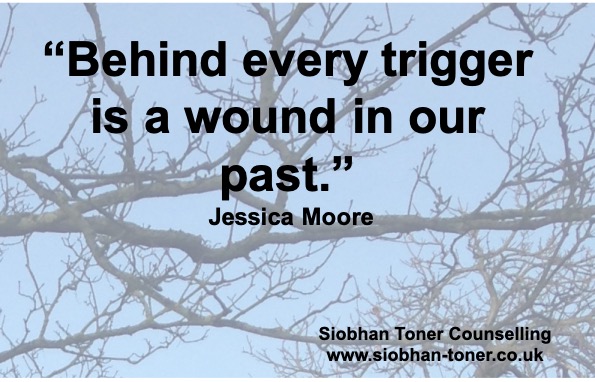
I see more online about family estrangements and separated families. While its always a risk going into comment sections of social media I also find it interested how people view these situations.
Now, like everyone else apart from those directly involved, I don’t know the full story of what is being posted. I do know the stories of many people (including my own) of those who have chosen to cease contact with family members. It’s never an easy choice and it usually comes after years or decades of toxic or abusive relationships. Within those relationships, all parties may have displayed behaviour they are not proud of; they may have tried to repair things unsuccessfully; they may have papered over the cracks again and again.
Each story will be different. What isn’t helpful is other people who are on the outside passing judgments. These judgements are at best unwelcome and also potentially damaging and abusive.
I was reminded recently of the request by many school for parents not to take photos at school plays because they may contain images of other children who are at risk. With these being put on social media, then they can be traced must easier. I am sure there are people who object to this as their experiences have meant that haven’t had to consider these things. It’s the same with judging separated families.
Without the experiences then it may not be obvious why people make the choices they make. Instead of judging or worse interfering in a way that can put people at risk, try and ask yourself what would lead someone to make a choice like that?
If you haven’t had a family like this, then please recognise what a privilege that is for you. A secure loving family of one of the greatest advantages anyone can have. The evidence on adverse childhood experiences which I have written about before show just what an advantage this gives to you.
If you have made a choice to remove contact with a family member, then I am sorry you have needed to and I wish you well. It can seem so much harder in December dealing with these issues as family celebrations are promoted to us everywhere.